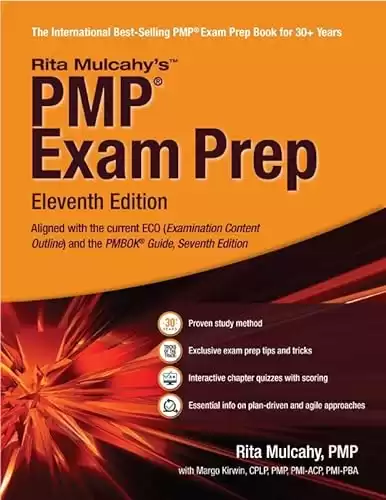Passing the Project Management Professional (PMP) Certification exam is a significant milestone for career-driven project managers. The PMP designation, offered by the Project Management Institute (PMI), is recognized worldwide as a benchmark for excellence in project management. However, it’s no secret that the PMP exam is challenging. To help you conquer this hurdle, we’ve compiled an article with strategies and tips to guide you through your exam preparation.
Understanding the PMP Exam Content Outline
Before you even begin to study for the PMP certification exam, it is crucial to understand its structure. The exam tests candidates across five performance domains:
- Initiating the Project
- Planning the Project
- Executing the Project
- Monitoring and Controlling the Project
- Closing the Project
Each domain comprises tasks that reflect the most common elements of project management practice. Familiarizing yourself with each domain and its tasks should be your first step in preparing for the exam.
Strategies to Prepare for the PMP Exam
Create a Study Plan
Developing a detailed study plan is essential. Dedicate specific days and times for study, allowing more time for areas you are less familiar with. Your plan should:
- Allocate time for each domain.
- Schedule review periods to brush up on previous topics.
- Provide buffer time before the exam for final revisions.
Utilize Multiple Study Resources
Don’t rely on one source. Use various materials, including:
- PMBOK Guide (Project Management Body of Knowledge) – the foundational text from PMI.
- PMP Exam Prep Books – which provide exam insights, study tips, and additional practice questions.
- Online Courses – these may offer interactive and up-to-date content.
- Practice Exams – essential for familiarizing yourself with the format and timing of the actual test.
- Study Groups– for collaborative learning and networking with fellow PMP candidates.
Practice Diligently
Regularly solving practice questions is one of the best ways to prepare. It helps you:
- Gauge your understanding of the material.
- Identify your weaknesses.
- Get accustomed to the type of questions you will encounter on the exam.
Concentrate on the Key Concepts
Understand the core principles of project management that are fundamental to the exam:
- Key processes – Understand each process’s inputs, tools, techniques, and outputs.
- Formulas – Be comfortable with standard formulas, such as earned value calculations.
- Key definitions – Terms and concepts should be well understood and easily recalled.
- Project Management Methodologies – Comprehend the differences and applications of traditional (Waterfall), Agile, and hybrid approaches.
- Risk Management – Understand how to identify, analyze, and respond to project risks.
- Stakeholder Management – Know techniques for effectively engaging with stakeholders at all levels of the project.
- Ethics and Professionalism – Familiarize yourself with PMI’s Code of Ethics and Professional Conduct, as ethical questions may appear on the exam.
- Project Charter and Scope Management – Grasp the importance of the project charter and the processes involved in managing project scope diligently.
These are just some of the critical areas in which to focus your studies. Consult the latest edition of the PMBOK for a complete outline.
Engage in Efficient Study Habits
Breaking your study into smaller segments helps maintain focus. Intensive learning sessions of 25-30 minutes followed by a short break can improve retention.
Join Study Groups or Forums
Interacting with peers and studying for the PMP exam can be beneficial. It’s an opportunity to share knowledge, exchange ideas, and offer motivational support. Joining a PMP study group or forum can provide significant advantages, including moral support, knowledge exchange, and new perspectives on challenging concepts. Here are some ways to find study groups:
- Social Media Platforms: Search on LinkedIn, Facebook, or Reddit for groups specifically focused on PMP exam preparation. These platforms often host various study groups catering to different learning styles and schedules.
- Project Management Institute (PMI) Chapter Meetings: Local PMI chapters frequently offer study groups for members. Attending chapter meetings can also help you network with other project managers interested in forming a study group.
- Online Forums and Websites: Websites dedicated to project management or PMP exam preparation may have forums where members can join existing study groups or request to form new ones. Sites such as PMI.org and ProjectManagement.com can be good starting points.
- Educational Platforms: Online learning platforms that offer PMP prep courses sometimes also facilitate study groups for their learners. Enrolling in a course might give you direct access to a dedicated community.
Apply Memory Aids
Employ mnemonic devices to memorize lists and sequences and utilize diagrams or charts to understand processes and workflows. For example, to better retain the sequence of project management processes, you might use the mnemonic “I Prefer Eating Mangoes Chilled,” where each initial stands for the five performance domains: Initiating, Planning, Executing, Monitoring and Controlling, and Closing. This simple technique can be a powerful aid during your study sessions.
Another helpful tactic involves diagrams for understanding complex workflows or processes. Creating a flowchart that outlines the sequence of project management tasks, from initiation to closure, can help you visualize the project lifecycle. This visual representation makes it easier to grasp interdependencies and the overall structure of project management practices.
Additionally, when studying the various formulas needed for the exam, such as those involved in earned value management (EVM), developing a chart that summarizes each formula’s components and a real-world application example will aid in memorization and comprehension. For instance, a chart could illustrate the formula for calculating the Cost Performance Index (CPI) = Earned Value (EV) / Actual Cost (AC), followed by an example to contextualize its use.
Review and Revise Consistently
Regular revision is critical to the long-term retention of information. Regularly revisiting complex concepts helps reinforce your knowledge. Try to review concepts daily leading up to your exam date.
Simulate the Test Experience
Perform several full-length, timed practice exams. It raises your comfort level with the exam format and enhances your time management during the test.
To further aid your preparation for the PMP Certification Exam, here are some resources to find quality PMP practice exams. These resources provide a mix of free and paid exams designed to simulate the actual exam experience.
- PMI.org – The official Project Management Institute offers practice exams for members, giving you the most accurate representation of the exam format and questions.
- PrepAway – At PrepAway, you’ll find a selection of free and premium PMP practice tests. These exams are regularly updated to reflect the latest exam patterns.
- Project Management Academy – The Project Management Academy provides a high-quality PMP practice exam with questions very similar to what you will face on the exam.
- Simplilearn – Simplilearn offers a PMP Certification Practice Exam Package with multiple full-length tests. It is known for its comprehensive explanations and exam analysis.
- PMTraining – PMTraining provides online practice exams and has a track record of helping many aspirants pass the PMP exam with their extensive question database.
Utilizing these resources can significantly improve your preparation by familiarizing you with the exam structure, time constraints, and types of questions you will encounter. Start practicing to assess your knowledge early and improve your confidence for the exam.
How I Passed the PMP On My First Try
A pivotal resource in my successful PMP exam preparation was Rita Mulcahy’s PMP Exam Prep book. This comprehensive guide demystified complex project management concepts and provided practical strategies for tackling exam questions. Mulcahy’s unique approach to explaining topics through real-world examples and her focus on critical thinking rather than rote memorization resonated with my study style. The end-of-chapter practice questions were incredibly beneficial, faithfully simulating the difficulty and structure of the exam questions, which significantly boosted my confidence and readiness. This resource is the best one to prepare you for the exam, especially if you are a book learner. It worked for me! Here’s a link to the latest edition book on Amazon:
Project Management Professional Organizations
These organizations provide invaluable support through industry standards, certifications, education, networking opportunities, and more, catering to the diverse needs of project management professionals around the globe. The PMP certification is the most recognized credential in the U.S. and it is offered by the first one in the list, PMI. Check on PMI’s website for the details on preparing for the exam and how to obtain its PMBOK (Project Management Body of Knowledge).
- Project Management Institute (PMI) – The leading not-for-profit professional membership association for the project management profession.
- International Project Management Association (IPMA) – A federation promoting project management recognition with about 70 member nations worldwide.
- Association for Project Management (APM) – A UK-based professional body providing qualifications, events, publications, and membership services for project practitioners.
- American Society for the Advancement of Project Management (asapm) – The USA member association of IPMA, focusing on advancing the project management practice, science, and profession.
- Scrum Alliance – Offers support for agile and scrum practitioners, including certifications, community support, and educational opportunities.
- International Association of Project Managers (IAPM) – A global association that offers certification programs and information on the latest developments in project management.
Conclusion
Passing the PMP exam requires commitment, strategy, and focused study. By following the above methods, incorporating a robust study regimen, and maintaining confidence in your abilities, you pave the way for success. Remember, the PMP credential is not just about passing an exam—it symbolizes your dedication to the project management profession.
Good luck with passing the PMP Exam on your first try!
Thank You for Visiting!
To see more helpful articles on my blog page, please click here. You’re welcome to learn more about me and what I can do for you at my Upwork account here. I’m also on On X/Twitter here. Again, thanks for visiting and let me know if I can help!

